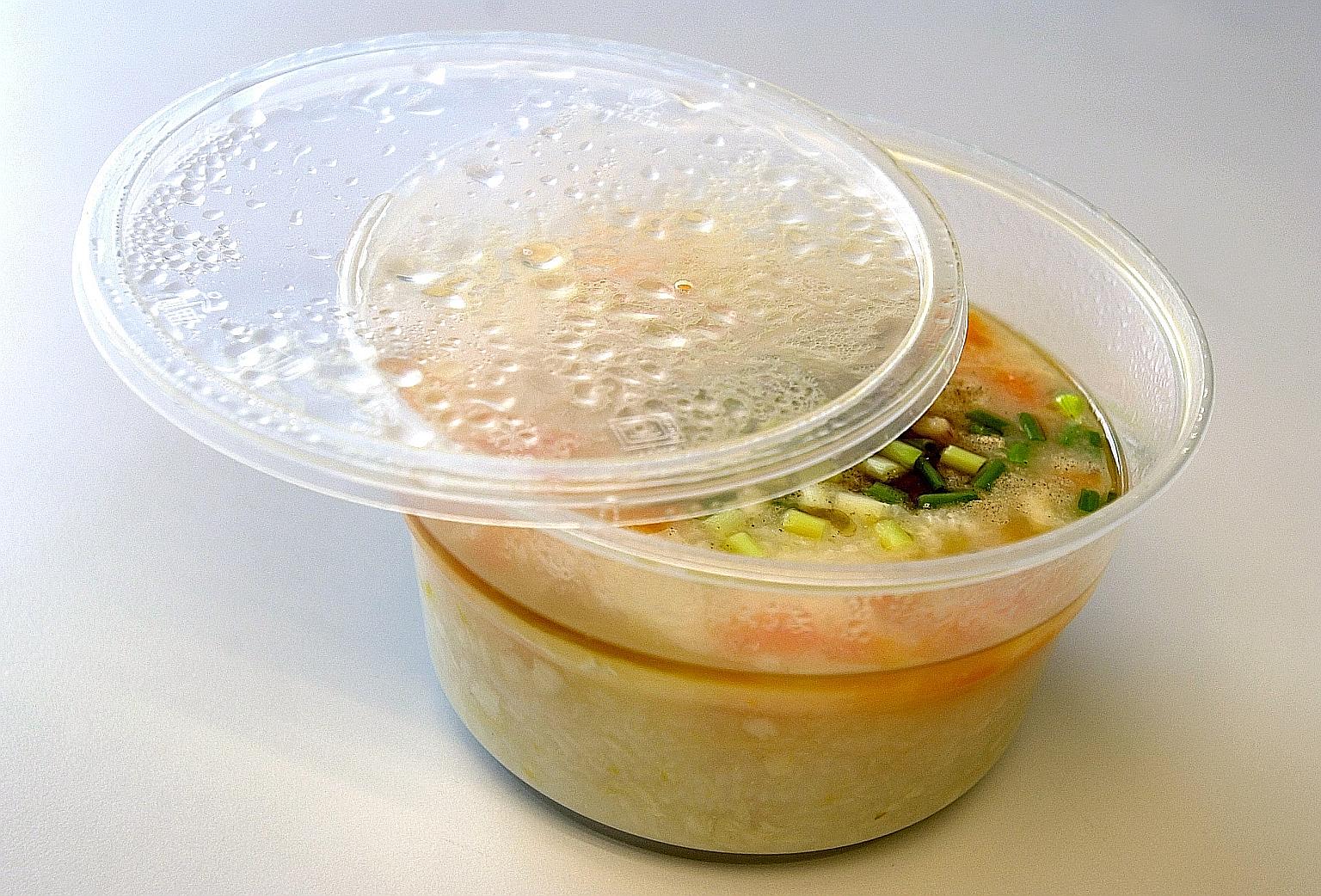Go green amid Covid-19 circuit breaker, but with clean containers
Sign up now: Weekly recommendations for the best eats in town

While demand for disposable food packaging has skyrocketed, some vendors are wary of customers' reusable containers harbouring the coronavirus.
PHOTO: ST FILE
Hannah Bock, Eunice Quek
Follow topic:
Hundreds of retail outlets in Singapore have been rewarding consumers for choosing reusable bags, bottles and containers since the non-profit Zero Waste Singapore began the Bring Your Own (BYO) movement in 2017.
These days, however, it seems that your personal mug might earn you a wary look - rather than a discount - at your favourite eatery.
Many food and beverage companies, including brands like Gong Cha and Starbucks, are putting their BYO schemes on hold as an additional precaution against the coronavirus.
But with every takeaway and delivery, it is hard to ignore the amount of plastic that piles up.
After announcing that dining-in at eateries would be banned from last Tuesday, Trade and Industry Minister Chan Chun Sing urged people to use their own clean containers instead.
This is to "help reduce the amount of packaging used and be more environmentally sustainable", he said.
His call to action has long been championed by environmental organisations, like the youth-led Project bECOme, who are anxious that current fears of contamination will erode ongoing efforts to recycle, reduce and reuse.
Ms Coco Oan, 21, founder of Project bECOme and a student at Yale-NUS College, says: "While we prioritise the community's most urgent needs, we should address them in ways that least compromise our future needs.
"After all, we can only lead healthy lives in a healthy environment."
LESS TRASH, LESS CRUNCH
Beyond sustainability, they argue that the BYO movement also helps to reduce the workload of front-liners such as cleaners and waste disposal workers, as it means less trash.
For food vendors, who have been scrambling to secure enough takeaway plastic bags, containers and cutlery to tide them through the month-long circuit breaker, BYO may be a small source of relief.
According to The Business Times, it can be difficult for local packaging suppliers to accept new orders as they are already facing a crunch from the partial lockdown in Malaysia, where some manufacturing plants are located.
Demand for disposable packaging has skyrocketed so much since last week, it threatens to outpace the supply chain.
Some hawker stalls have already put up signs to remind customers to bring their own food containers.
But many green advocates like Ms Oan recognise the fears that some may have about reusable containers carrying the virus. She says: "We must be socially responsible and ensure that our container or cup is thoroughly cleaned and dried before handing it to the vendor."
Mount Elizabeth Novena Hospital's infectious diseases physician Leong Hoe Nam, 49, agrees that "viruses do not like soap and water" and a wash with regular detergent should suffice.
In any case, beyond packaging, there are many other potentially more worrying touch-points when it comes to food hygiene, like the exchange of cash, food and delivery handlers, and disposables which are left exposed to the air, says Ms Pek Hai Lin, 32, executive director of Zero Waste Singapore.
ALLAYING WORRIES
Meanwhile, companies pressing on with BYO schemes have various measures in place to ease customers' concerns.
At SaladStop!, for instance, reusable containers never enter the food preparation area. The server tosses the salad in a ceramic dine-in bowl before transferring the contents to the container.
Servers change their gloves and wipe down the serving area after every order. Restaurants such as Yun Nans and Kam's Roast will accept only clean, washed containers from customers. Dirty containers are rejected.
Other cafes, who have put a pause on their BYO schemes, are using container lending systems for zero-waste takeaways instead.
At Plain Vanilla Bakery, customers can borrow sanitised tumblers or containers from Muuse, which supplies about 15 cafes island-wide.
To grab a takeaway in reusables, customers scan a QR code on the company's app and return the item to any of Muuse's drop-off locations within seven days to avoid a $10 fee.
A similar service is barePack, which lends its containers to a network of about 40 eateries, including The Social Space cafes and dessert shop WellSmoocht. A barePack subscription costs $5 a month, but is free for the duration of the circuit breaker period, when ordered with the promotion code "StaySafe".
Eateries like Le Xin Catering Group also do deliveries in metal tingkats for meal subscription plans costing upwards of $167 for 20 days.
All these earth-friendly options can be found on Project bECOme's spreadsheet of zero-waste food delivery options, which covers meals, groceries, snacks and alcohol. It went live last Monday and is being updated as more food and beverage outlets come on board.
Perhaps, the main takeaway for going green in the face of Covid-19, like in other times, is that every small effort counts.
Even if you still have residual fears about using reusable containers in this time, Ms Oan suggests you can at least opt to use your own cutlery from home. "We can also do our part by staying home to avoid wasting disposable masks and refrain from hoarding, making sure we buy only what we need."

